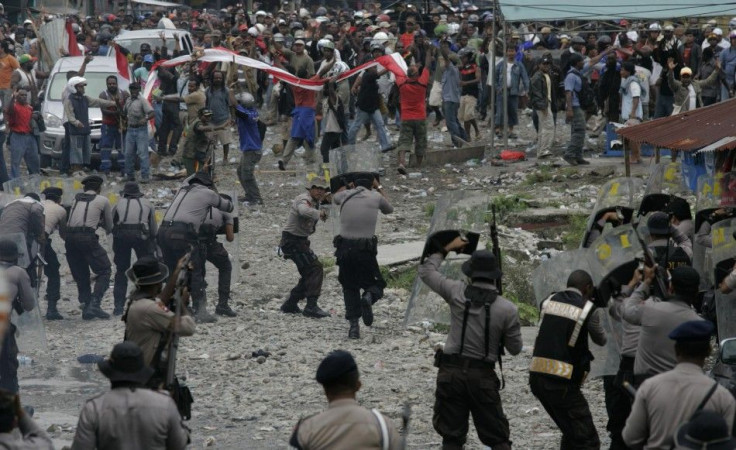Grasberg Miners Repel Police Trying to Open Key Road

Police failed to lift road blockades stopping fuel and food reaching Freeport McMoRan Copper & Gold's mining operations in Indonesia's Papua region, after clashes with striking miners and local tribesmen on Friday.
Miners have been striking at Grasberg, the world's second-biggest copper mine, since mid-September, disrupting output and stopping shipments. Violence has escalated in recent weeks with sabotage to pipelines and deadly attacks on employees.
Angry workers and people from seven local tribes are blocking the main road near an airport in Timika that links Freeport's port to the Grasberg mine, and refused to shift after police gave them a deadline to move by Tuesday.
People fought back. The police gave several warning shots but they have left now, said a striking worker, adding there were no casualties reported. The tribes have conducted war ceremonies. They are ready to die for this.
The worker dispute over pay has drawn in local tribes, armed with spears and arrows, who have their own grievances over land rights, pollution and a lack of apparent benefit for the region from its resource wealth.
The police and army have been criticised for human rights violations in the remote mountainous region, where a separatist movement has simmered for decades, while Freeport has come under fire for payments to authorities for security.
The blockades are part of a prolonged strike by around 12,000 of the mine's 23,000 workers. The company has offered a 30 percent pay rise but the union is holding out for a fivefold increase.
Freeport said on Tuesday production and processing rates at Grasberg had fallen below levels needed to meet fourth-quarter sales targets.
It also said it could take a month to fix its main sabotage-hit pipeline to take concentrate to its port where there are no stockpiles left for shipping. On Oct. 26, Freeport Indonesia declared force majeure on affected concentrate sales.
The energy ministry said on Thursday that Freeport Indonesia was now producing at 5 percent of its full capacity due to damage in the pipeline.
© Copyright Thomson Reuters 2024. All rights reserved.






















